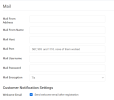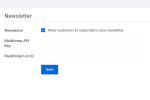sezohessen
New Pleskian
I got 500 | SERVER ERROR after deployment the project .I run key:generate, config:cache, optimize But no thing happened.
.env file is exist , I also migrate the database successfully
.env file is exist , I also migrate the database successfully



